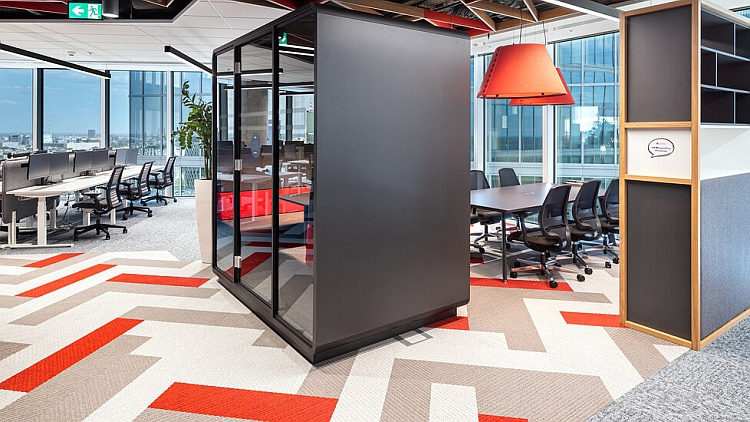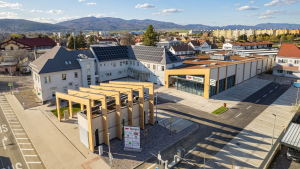
For nearly 1.5 years, since the beginning of the pandemic, the hybrid work model has permanently established itself in the labour market. According to the report, "Back to the office - an opportunity and a challenge. The office market and coronavirus", prepared by Colliers, the vast majority of companies would like to stick to this model also in the post-pandemic reality.
The report is based on the results of the second edition of the survey conducted among nearly 200 tenants of office space in the largest cities in Poland. The survey aimed to find out their views on the current situation as well as their predictions for the future model of work. Most of the companies participating in the survey are related to the IT industry, business services and banking, insurance and investments.
The new standard for now and in the future
The survey results show that 60% of companies currently work remotely, 34% work in a hybrid mode, and only 6% declare working exclusively inthe office. Organizations most often indicated 3 or 4 days a week as the scope of remote work in the hybrid model (67% and 49%, respectively).
“The vast majority of respondents, that is 77%, want to stick to the hybrid model, which has worked well in most cases, even after the pandemic is over. Employers most often declared that they would like to keep working remotely 2 or 3 days in a week - 35% and 33% of respondents voted for those options, respectively”, says Kamila Barabasz, senior associate in the Office Agency at Colliers.
“While companies have recognized the undoubted advantages of allowing employees to work out of the office for a specified period of time, the remote model also pesents many challenges. The main one is to maintain a sense of belonging to the company among employees, which was indicated by 65% of the respondents, as well as high teamwork efficiency, which was reported by 42% of companies. An important issues is also to ensure a work-life balance - 61% of respondents consider it a big challenge in the remote model. 53% of the respondents pointed to the more problematic process of onboarding new employees who have limited opportunities to learn about the team and the organization’s culture”, adds Katarzyna Włodek-Makos, senior associate in Office Agency at Colliers.
Despite these challenges, the vast majority of companies, that is up to 70%, still refrain from deciding when to return to the office. Among the 13% of respondents who have already made such a decision, the most frequently indicated dates for this operation are June and September 2021. Some organizations are wondering whether the scope of the office should be available again to employees - or for everyone, and a limited number of people or only for those willing.
The time of challenges is still ahead
The pandemic has affected the labor market, but not in all areas. The vast majority of respondents (67%) declared that the COVID-19 pandemic has not caused any changes in employment or in their office space so far (according to 60% of respondents). However, companies are realizing that the pandemic’s end upcoming end is also a time of important decisions . Among the main challenges in the near future, the survey’s respondents indicated thinking about the most optimal work model , possible development and implementation of a hybrid work model or encouraging employees to return to the office.
“Some concerns are related to the office space itself, which may require reorganisation and adaptation to the new reality, including by introducing hot desks, booking systems, office management applications or organizing more space for collaborative work. Companies will have to consider how much and what kind of space they need and in what location - it may be a good time to move or introduce flexible spaces. An additional challenge is the uncertainty of the pandemic situation in the future - it will be important to be ready for various unpredictable scenarios”, says Kamila Barabasz.



